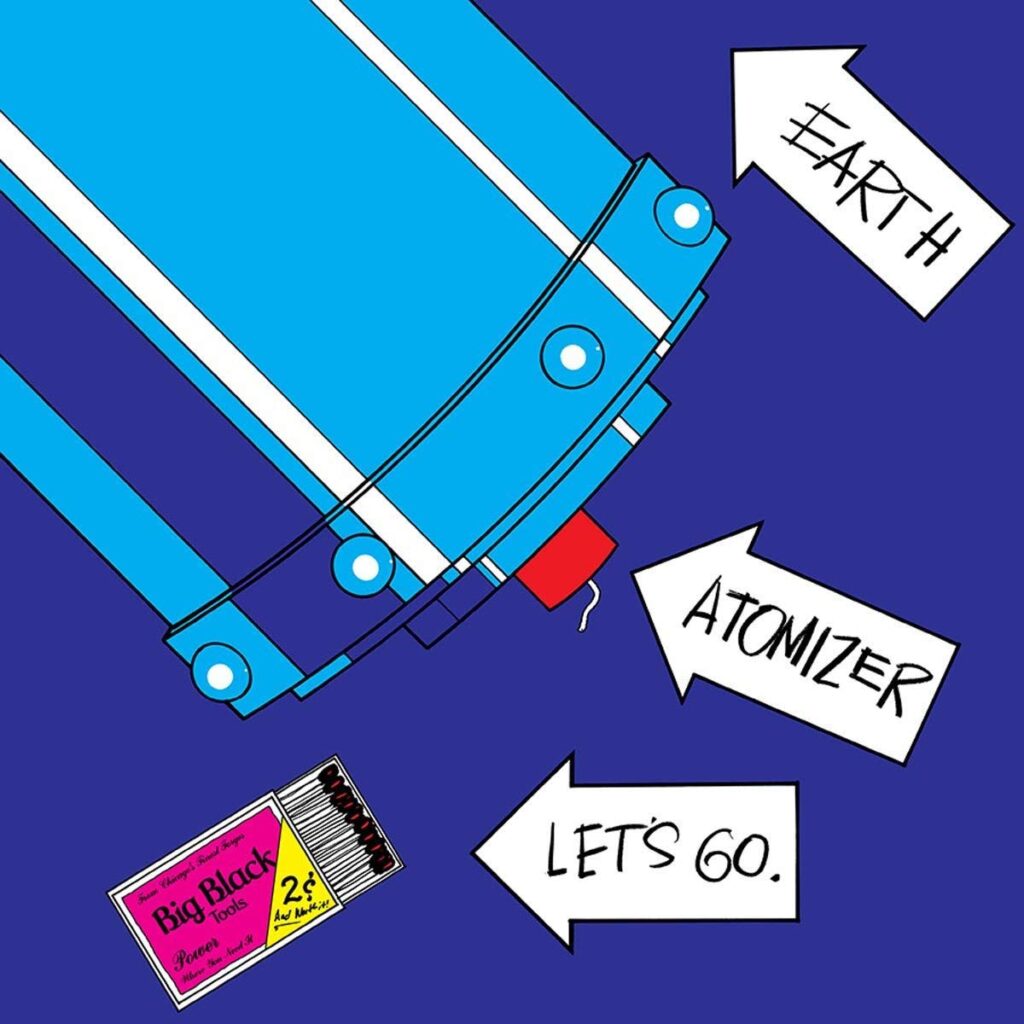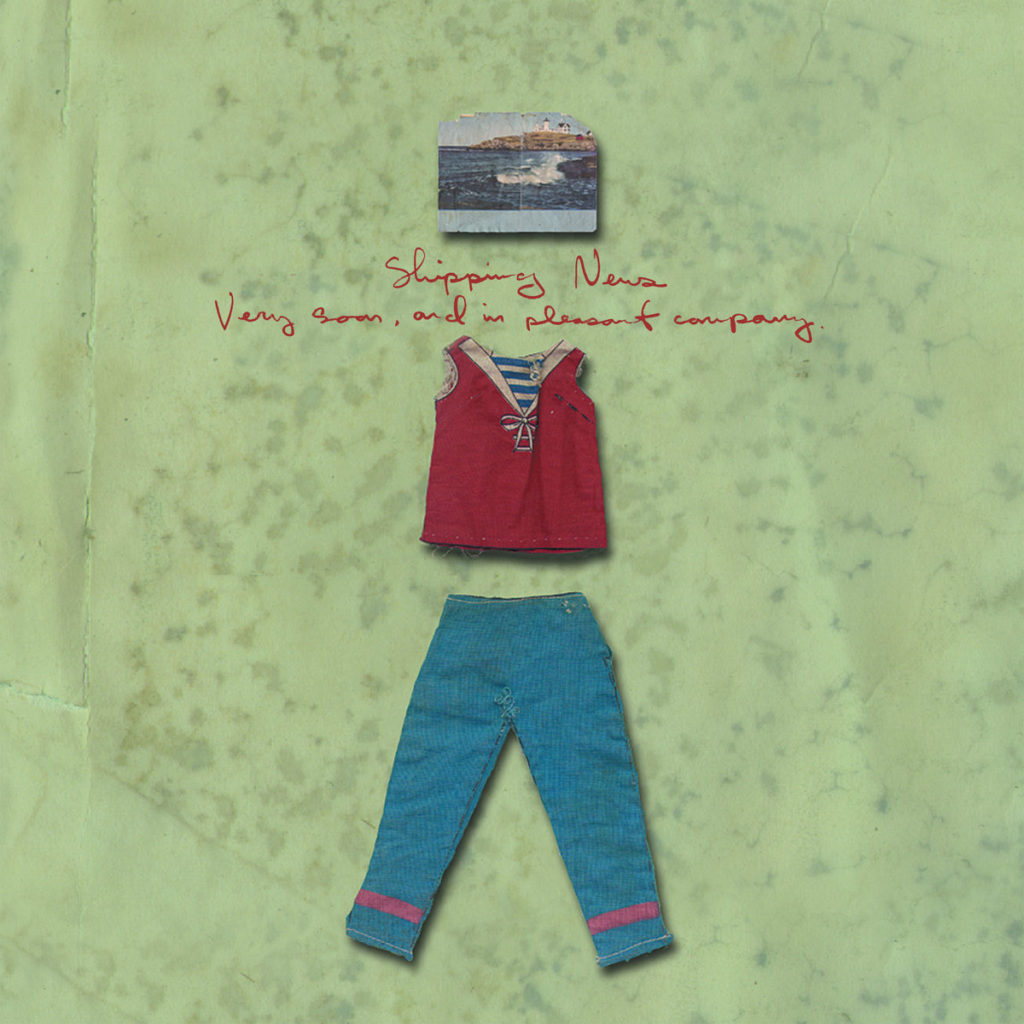
Underappreciated Album: Scratch Acid – The Greatest Gift
More people have probably seen Scratch Acid cited as an influence in interviews than have actually heard the band. This is a truth probably known all too well by Touch and Go Records guru Corey Rusk, who released a compendium of the Austin, Texas outfit’s complete works under the appropriate title The Greatest Gift in the early 1990s.
The collection should have hit at just the right time: it was released as one of the band’s most noteworthy and acclaimed offspring – The Jesus Lizard – was becoming a critical darling with explosive indie rock gems like Goat and Liar. Sadly, though, it didn’t, and the band continued to be more name-dropped than actually heard, your average scenester not realizing how much Scratch Acid laid the foundation for countless punk and post-punk acts that followed them.
In mail-order catalogues from the early-90s, Touch and Go described Scratch Acid somewhat modestly, playing them up as “Tex-punk if you were eating barbecue tainted with the taste of Phenobarbital.” The description is a fitting one and hints at the dark, disorienting tone of much of the band’s output, but it doesn’t really do enough to separate Scratch Acid from its Texan noise-punk peers, The Butthole Surfers. In their early days, both bands – like fellow Texans Big Boys and others – crafted an energetic and often chaotic brand of punk rock. But, while The Butthole Surfers went on to distort the medium with surreal soundscapes and an over-the-top, crazed sense of humor, Scratch Acid took a more straight-forward route, coming up with a sound than subtly blended elements of early punk, guitar-driven rock n’ roll and rockabilly, jazz, and electric blues.
On The Greatest Gift, you can hear that sound mutate and develop, from the blood-curdling growl of 1984’s Scratch Acid EP to the more sonically developed – though no less volatile – swagger of Just Keep Eating and Berserker (both 1986).
The 28-track disc begins with the band’s first EP, where we can already feel the musical equation falling together. On “Greatest Gift,” “Monsters,” and “She Said,” Brett Bradford’s blues/rock guitar shifts between abrasive stomping and a high-pitched wail as vocalist David Yow moans, roars, and howls, a madman who’s been caged for years, only to be unleashed in front of a very angry rock band. While the two leads often battle to see who can sound the most psychotic (Yow usually wins), the bottom end is held together with glue provided by the agile bass figures of David Wm. Sims and the tight metronome pounding of Rey Washam.
Even in its nascent stages, though, the band does far more than prove itself effective at thrashing around and screaming. Bradford’s blues leanings are pushed a little more to the forefront on “Owner’s Lament,” but it’s a minor detail in the song that most defines the band’s attentiveness to fleshing itself out: there’s a string arrangement. The overall tone and feeling produced – volatile yet strangely composed – hints at the synth-laced rock-metal hybrid that Faith No More managed to drive up the charts a handful of years later, and it only goes to further illustrate how ahead of its time Scratch Acid was.
While every track on the EP is worth mentioning – there’s not a piece of filler here – the band nails its sound with “Mess,” a tightly wound number that generates alarming tension through Sims’ pulse-quickening scales, Bradford’s spare notes, and Yow’s odd vocal asides, which include coughing and hacking. The band toys with similar devices on “El Espectro,” where Bradford waits in tow while Sims and Washam keep the song creeping, creeping, creeping forward during the taut verses. On the choruses, though, everything slams together and then erupts, with Bradford launching into full-chord assaults and Yow eventually abandoning his lyrics to just simply roar.
There are roughly two years between the eighth and ninth track on The Greatest Gift, and it’s readily apparent through the marked change in the band’s sound. While they have far from sand-papered down their rough punk edges, the foursome in 1986 sound like they’ve grown musically, and the resulting songs – from Just Keep Eating – are more expansive and put together. There’s the ominous sway of the ballad “Crazy Dan” and the dreamy instrumental “Albino Slug;” the jazzy swing of “Damned For All Time” (yes, Tim Rice and Andrew Lloyd Webber’s “Damned For All Time”), and the addictive “Amicus”; the trashy, rockabilly romp of “Eyeball” and “Holes;” and the almost-funky refrains of “Cheese Plug.”
In its heart of hearts, though, Scratch Acid is still dying to burst at the seams. For all the proof you’ll need, just listen to how Yow screams “My rotted thoughts are scattered / across these concrete floors” before a crashing chorus of guitars in “Spit a Kiss.”
Some of the greatest moments on the band’s posthumous Gift, however, may come in its closing tracks, which – aside from the unreleased 28th track, 1982’s “The Scale Song” – all hail from Berserker. Released by Touch and Go after Scratch Acid had a less than amicable split with Texas indie Rabid Cat (details available with the record, kids), Berserker is the band’s swan song, and it’s an angry, blistering affair from square one.
“Mary Had a Little Drug Problem” rivals The Jesus Lizard’s “Boilermaker” (from Liar) and Big Black’s “The Power of Independent Trucking” (from Songs About Fucking) as one of the most aggressive tracks to kick off a record. The band sounds like a single, furious beast on the track as Yow roars in a kind of odd stream of consciousness, “Now let / me go / Vincent Van Gogh / I read / the mother had died / I read / the mother had died / insecure us / the boy’s / extremely green! / green! / green!”
After the more carefully crafted songs of Just Keep Eating, this strange, frenetic energy is displayed over the remainder of the disc. You can feel it as Yow wails over an endless drum roll on “For Crying Out Loud,” in the sharp blasts of guitar noise Bradford lays over Sims’ and Washam’s slithery crawl in “Moron’s Moron,” and in the way the band thrashes around just enough on “This is Bliss” to get Yow to lash out like a complete maniac. And then there’s “Flying Houses,” a jagged and angular punk-rock gem that feels like it’s being beaten into your head courtesy of Washam’s mind-numbing repetitions on the toms. The song stops on a dime not once but twice and then quickly cuts between an angry punk rock stomp and a bluesy scream, with Yow barking words that, over 15 years later, seem oddly appropriate: “Who will laugh last? Who will laugh last?”
Oddly enough, it seems, not Scratch Acid.
After the band’s demise in May 1987, Scratch Acid’s inventive rhythm section joined Steve Albini in the incredible, post-Big Black trio Rapeman. Shortly after that band also went the way of the buffalo, Sims rejoined Yow, and they replaced the explosive blues leanings of Brett Bradford with the explosive jazz structures of Duane Denison in The Jesus Lizard. (They also, sadly, called it a day.)
If still active, Bradford’s been pretty quiet, and Washam, for his part, has continued to pop up here and there, offering inventive and amazingly tight percussion to bands as diverse as trash-punk luminaries The Didjits, industrial-metal icons Ministry, and the surreal rock act Daddy Longhead, a Butthole Surfers side project.
The liner notes to The Greatest Gift, however, may offer a better – or at least slightly more conclusive – post-script for Scratch Acid. “At press time, Scratch Acid has yet to receive anything like accounting for its original releases on Rabid Cat and Fundamental [who put out the band’s catalogue in Europe], and many promises of payment and ciphering have been fruitless,” writes Mike Hunt (a pseudonym, perhaps?) in the CD booklet. “This collection should redress those errors, and make the music of the third or fourth most influential band of the 80s available to an audience that otherwise might only be cognizant of its imitators.”
It’s a bold statement but one that could hold true, especially as more and more bands cite Scratch Acid’s offspring as musical influences. And while throngs of people continue to flock to Black Flag or Minor Threat or The Ramones or Bad Brains to define the history and growth of punk and indie rock over the last 20 years, more could be learned from also looking to a band like Scratch Acid. The Greatest Gift, released without the fanfare or acclaim it merited, clearly does its part in providing the first step in that thorough education.




Wow! This can be one particular of the most useful blogs We have ever arrive across on this subject. Basically Great. I’m also an expert in this topic so I can understand your effort.